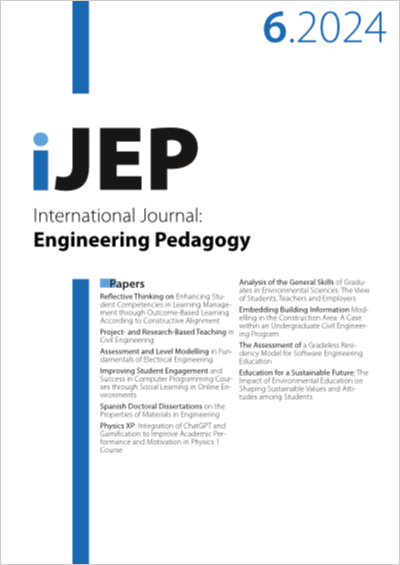Reflective Thinking on Enhancing Student Competencies in Learning Management through Outcome-Based Learning According to Constructive Alignment
DOI:
https://doi.org/10.3991/ijep.v14i6.48409Keywords:
reflective thinking, student competencies, learning management, outcomes-based learning, mechanical engineering, constructive alignmentAbstract
This study investigates the implementation of learning outcomes-based education in mechanical engineering, focusing on students aspiring to pursue teaching careers. By using constructive alignment and reflective thinking methodologies, the study aims to enhance these students’ competencies in line with professional teaching standards. The study targets a group of 23 mechanical engineering students. The researcher’s established learning process forms the basis for the study methodology, incorporating learning objectives, active learning, and reflective thinking. The tools employed include a knowledge measurement test, activity evaluation through observation participation, follow-up on a permitted 5-level activity, reflection on learning experiences through writing, structuring learning activities in each subject, and assessment using qualitative content analysis. The results reveal significant variations in students’ academic achievements before and after the study, indicating moderate learning progress. The assessments of management learning performance are comprehensive, with learners engaging at the highest average level. This study underscores the significance of reflective learning approaches in developing competencies that align with professional teaching standards, enhancing students’ capacity to critically assess their thoughts, feelings, and attitudes, thereby influencing their actions and preparing them for real-world applications.
Downloads
Published
How to Cite
Issue
Section
License
Copyright (c) 2024 Rinradee Papanai, Akkarat Poolkrajang

This work is licensed under a Creative Commons Attribution 4.0 International License.



